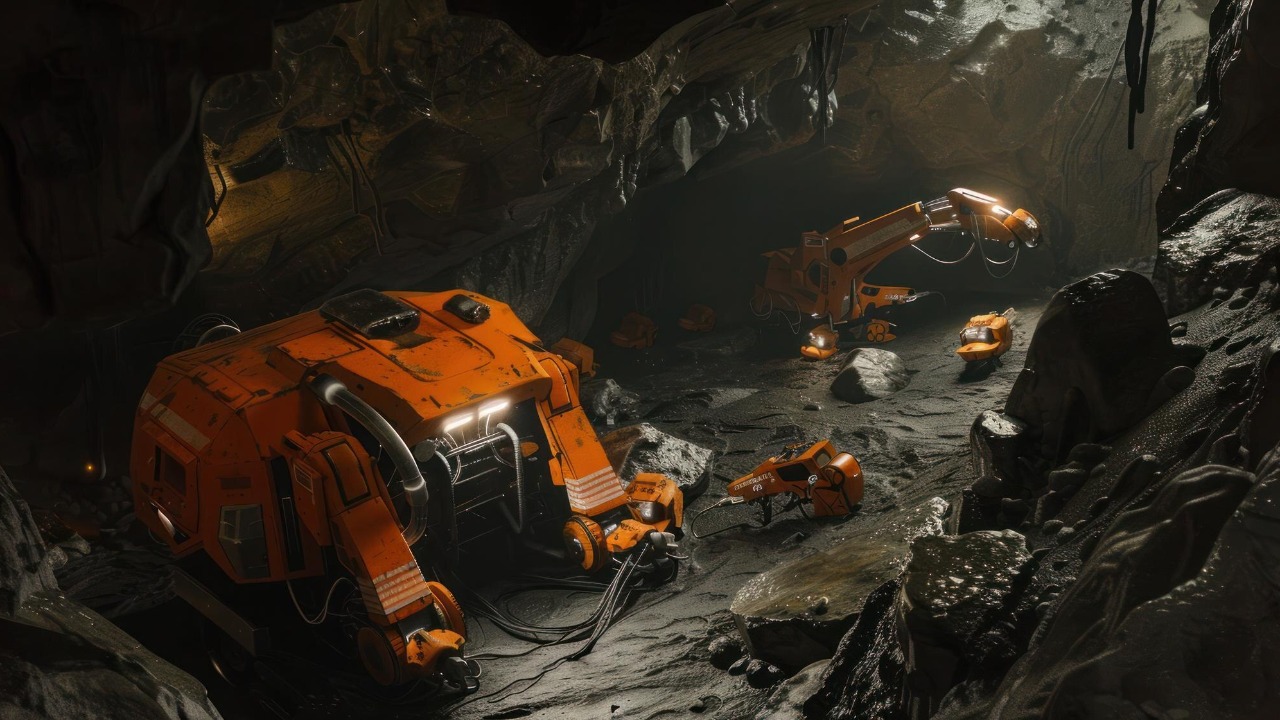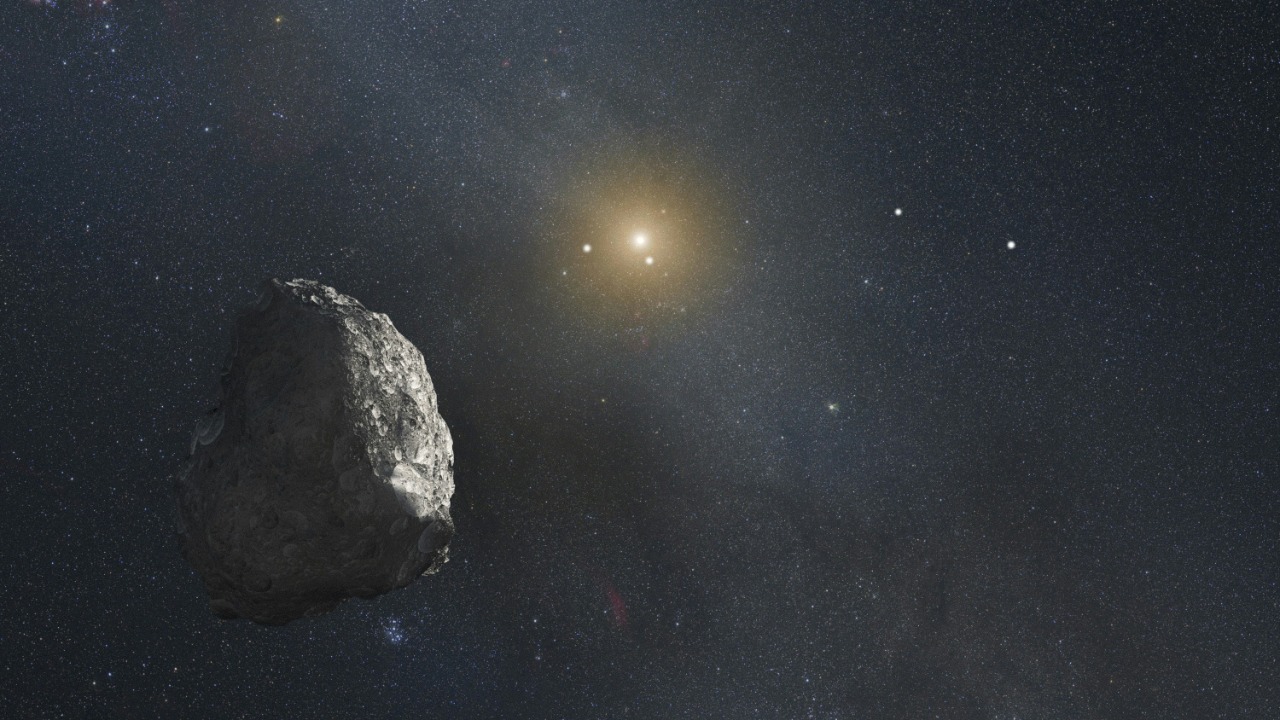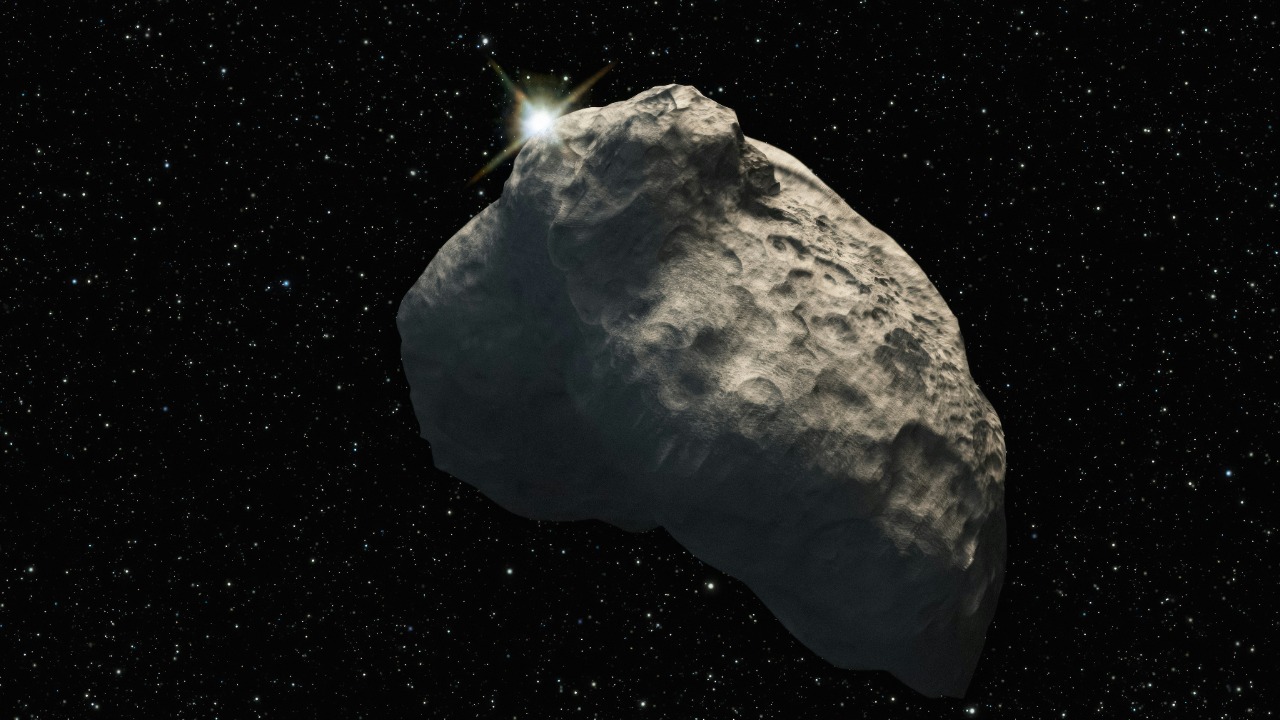The notion of asteroid mining has transitioned from a science fiction dream to a tangible future possibility, promising a transformative impact on the global economy. By tapping into the vast resources available in space, we could see a significant shift in resource availability, market dynamics, and economic power structures.
The Promise of Asteroid Mining

Asteroids are known to contain vast quantities of precious metals like platinum, gold, and rare earth elements. This resource abundance could potentially end resource scarcity on Earth, providing an almost limitless supply of materials that are essential for various industries. Imagine the impact on the electronics industry or renewable energy sectors, which rely heavily on rare earth elements. The availability of these resources could lead to a decrease in costs and an increase in production capabilities.
In recent years, technological advancements have brought the feasibility of asteroid mining closer to reality. Robotics and AI, for instance, are essential in developing autonomous systems capable of operating in the harsh environment of space. These advancements not only make asteroid mining viable but also drive innovation in other sectors by pushing the boundaries of what’s technologically possible. The ripple effects of these technologies could be seen in industries ranging from healthcare to manufacturing, as new solutions are developed to meet the challenges of space exploration.
The economic potential of asteroid mining is immense. According to various studies and economic models, the profits from mining a single asteroid could reach trillions of dollars. This potential has caught the attention of both governments and private enterprises, eager to capitalize on the new market opportunities presented by space. The influx of new resources and the creation of new markets could lead to significant economic growth and shift the balance of economic power globally.
Challenges and Risks

Despite its promise, asteroid mining faces numerous technological and logistical hurdles. The technical challenges of mining in space are immense, involving the transportation, extraction, and processing of materials in a zero-gravity environment. Developing the necessary infrastructure and technology to carry out these activities presents a significant barrier to entry that only a few well-funded entities can currently overcome.
Another major challenge lies in the regulatory and legal domain. As of now, there is a lack of clear international regulations governing space mining activities. The potential for conflicts over resource ownership in space is high, as various countries and companies vie for control of lucrative mining sites. Establishing a framework for cooperation and resource sharing will be crucial to prevent disputes and ensure equitable access to space resources.
Environmental and ethical considerations also need to be addressed. The impact of mining activities on the space environment, as well as the ethical implications of exploiting extraterrestrial resources, are topics of ongoing debate. Ensuring that asteroid mining is conducted responsibly and sustainably will be key to gaining public support and avoiding potential backlash.
The Impact on Terrestrial Markets

The introduction of space-derived materials could significantly disrupt global commodity markets. An influx of precious metals from asteroids could drive down prices, affecting the commodity prices and market dynamics of these resources on Earth. This could lead to economic instability in countries heavily reliant on mining industries or those with large reserves of natural resources.
As new resources become available, existing industries will need to adapt, and new industries will likely emerge. The availability of asteroid-derived resources could lead to the transformation of sectors such as manufacturing, energy, and technology, as companies innovate to incorporate these materials into their products and processes. This transformation could create new job opportunities and drive further economic development.
Asteroid mining also has the potential to shift global economic power dynamics. Countries and companies that take the lead in space exploration and resource extraction could gain significant economic advantages. This shift could alter traditional power structures and create new alliances, as nations collaborate to harness the resources of space.
Investment and Economic Policy

The role of public and private investment in asteroid mining ventures is crucial. Governments and private investors are needed to provide the financial backing necessary to develop the technology and infrastructure required for successful mining operations. The economic impact of these investments could be substantial, leading to job creation, technological advancements, and economic growth.
As the space-based resource economy emerges, new economic policies and frameworks will be needed to manage the transition effectively. Policymakers will need to address issues such as taxation, resource allocation, and international cooperation to ensure that the benefits of asteroid mining are distributed fairly and sustainably.
Risk management will also be a key consideration for investors and policymakers. The inherent risks of space exploration, including technological failures and market uncertainties, must be carefully managed to ensure the success and viability of asteroid mining ventures. Developing strategies to mitigate these risks will be essential for attracting investment and ensuring the long-term sustainability of the industry.
Future Prospects and Long-term Implications

Asteroid mining offers the potential to support sustainable resource management on Earth. By reducing our reliance on terrestrial mining, we could mitigate the environmental impact associated with extracting resources from our planet. This shift could lead to more sustainable practices and a reduction in the environmental degradation caused by traditional mining operations.
The long-term implications of asteroid mining extend beyond resource extraction. As the space economy expands, we could see developments in areas such as space colonization and infrastructure development. The ability to mine resources from asteroids could support the construction of space habitats and fuel further exploration of our solar system.
Finally, the advent of space mining could influence societal and cultural perceptions of space and humanity’s place in the cosmos. As we venture further into space, we may begin to see ourselves not just as inhabitants of Earth, but as participants in a larger, interplanetary community. This shift in perspective could have profound implications for how we view our planet, our resources, and our future as a species.